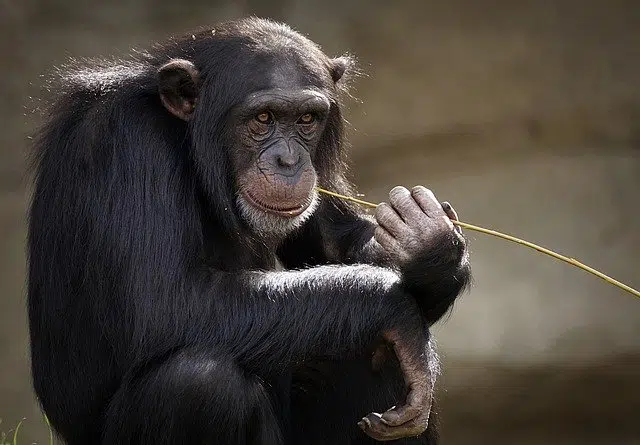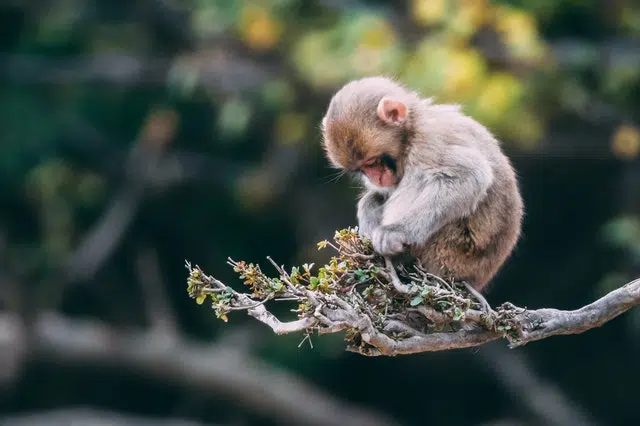
The genetic closeness between chimpanzees and humans is considerable
Primatology is the discipline dedicated to developing research on primates . A primate, meanwhile, is a mammalian animal , plantigrade, with five fingers that end in nails on its extremities and with thumbs opposable to the rest on the upper limbs.
The primates
Before moving forward with the idea of primatology, it is important to mention that the human being is a primate. Monkeys , lemurs and other classes of animals are also part of this group, divided into two suborders: the haplorhines (with a simple nose) and the strepsirrhines (with a crooked nose).
It is an order of placental mammals : an order is a mandatory category for the classification of living beings that is located between class and family , although it was formerly synonymous with the latter; Mammals are vertebrate animals that have mammary glands to feed their children with milk; Placental mammals are those that retain their young in the placenta during their development, before birth.
This order arose during the last part of the Cretaceous, over thirty million years , as the evolution of small terrestrial mammals. In the beginning, they had to adapt to living in the trees of the tropical jungles. We can see this in several of the most obvious features of primates: their acute vision, capable of perceiving a large number of colors, their shoulder girdle (which goes from the upper end of the pectoralis major muscle to the base of the neck) and dexterity. from his hands.
Goals of primatology
Returning to the concept of primatology, its field of study combines issues from biology , ecology , anthropology and other sciences. Its experts examine the anatomical characteristics of primates, their ethology and other traits.
It is important to mention that Homo sapiens and the chimpanzee share 98% of their genetic material. This similarity demonstrates the importance of primatology to understand the evolution of our species.
Jane Goodall
One of the great historical specialists in primatology is the Englishwoman Jane Goodall . A member of the Order of the British Empire and the French Legion and with several honorary doctorates to her credit, this scientist studied the social bonds of chimpanzees in a national park in Tanzania for more than five decades, making great discoveries. Goodall is also noted for her efforts to ensure animal welfare.
His profession is ethology , a branch of experimental psychology and biology that focuses on the study of the behavior of animals in their natural habitats. Although field studies are more common, ethologists can also choose to conduct their research in a laboratory, with the inevitable deprivation of liberty of the subjects. Given her animalistic and activist inclination, Goodall was absolutely against this last option.
She is the founder of the eponymous institute, as well as the Roots and Shoots program, and her work in favor of animal welfare and conservation is truly worthy of admiration. In addition, she was president of the organization called Animal Defenders , which was against the use of animals in laboratories for medicine, their exploitation on farms or in sports, and the existence of zoos.

We descend from small mammals
At an academic level
It should be noted that different educational centers around the world offer master's and doctoral degrees in primatology. Students, in this way, access theoretical classes and professional practices to specialize in the subject.
We can also mention physical anthropology (or biological anthropology ), a branch of biology and anthropology, as well as primatology itself. It is responsible for studying the evolution and biological variability of our species, starting with the most remote past and reaching the present. Its evolutionary, biocultural and comparative perspective distinguishes it from other disciplines.
